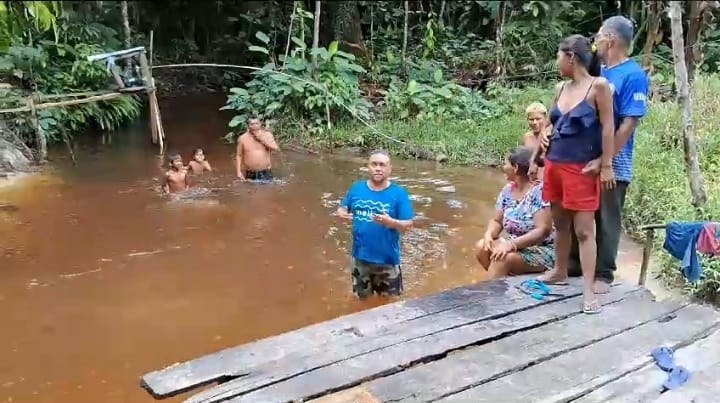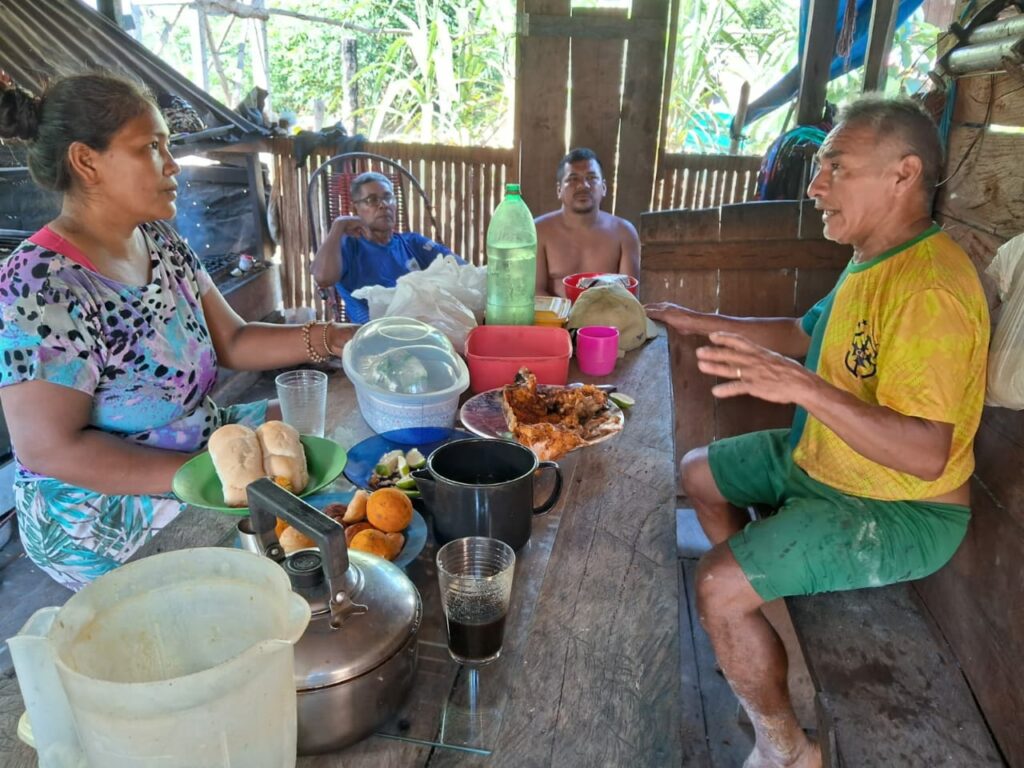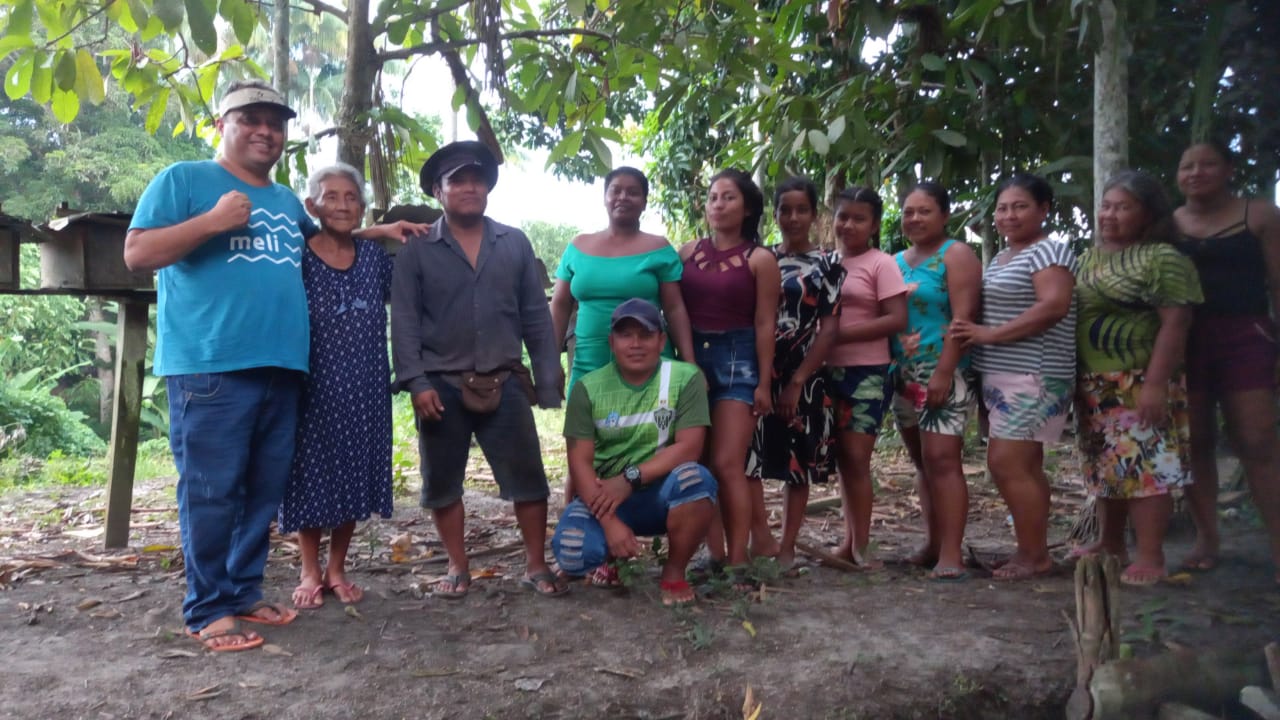Santo Antônio do Içá thrives as a mosaic of indigenous cultures where stingless beekeeping emerges as a unifying force. For the future, they envision a local cooperative driving economic autonomy and community cohesion.
Author: Ivi Pauli
Leia em Português
Nestled in the heart of the Amazon Rainforest, Santo Antonio do Iça is a mosaic of indigenous and traditional communities. With centuries of living in harmony with nature, the region now faces threats from deforestation and climate change, added up with escalating conflicts over land rights and the encroachment of industrial activities into traditional territories. To protect both culture and environment, they launched a sustainable initiative, with Meli’s support, focused on meliponiculture, aiming to balance economic needs with environmental stewardship.
Indigenous groups like the Kokama and Kambeba possess traditional knowledge and practices that inherently promote sustainability and environmental respect, including agroforestry to maintain soil fertility, and traditional medicine, based on the sustainable use of medicinal plants. In a remarkable collective effort, the Kokama people from the Aldeia São Pedro Do Lago Do Miriti, Associação Indígena Kokama De Santo Antônio Do Içá, Aldeia Indígena Raízes Da Ayahuasca, Comunidade São José, and the Kambebas from Comunidade Irmão Sol & Irmã Lua are actively involved and will each have their own bee yard.

The coordination of these communities is made possible by the charismatic leadership of the activist Rômulo Kambeba Omágua, an indigenous storyteller from Alto Solimões whose extensive network and deep knowledge make him a respected figure among everyone he knows. Supported by local leaders including Cacique Marciane, Cacica Joana, Cacique Hilário, and the leader Edinho, Romulo is determined to make the project a success.
Another crucial figure in this equation is Mr. Orlando “Bagunceiro”, a specialist in stingless bees and a proud member of the indigenous Cubeo and Guanano peoples of Colombia. “Adopted” by the Kokama people from Raizes da Ayahuasca village in Brazil, Mr. Bagunceiro has a deep curiosity about stingless bees and honey production. Despite having no formal training in the subject, he has become an experienced autodidact, learning through internet research and reaching out to specialists through his son, a doctor, and his daughter, a biologist. His dedication and self-taught expertise have made him an invaluable resource in the community’s efforts to cultivate stingless bees.

Meliponiculture, or stingless beekeeping, is a sustainable economic activity with profound cultural and environmental implications for the indigenous communities of Santo Antônio do Içá. On one hand, it offers a viable source of income, promoting economic autonomy and empowering the communities to take charge of their own development. On the other hand, the practice is deeply rooted in indigenous traditions. In addition it also is a vital component of conservation efforts for these native bees, which are important pollinators in the Amazon.
In Santo Antônio do Içá, the journey toward sustainable economic prosperity is underway. The establishment of meliponaries not only preserves traditions but also serves as a bridge between the past and the future, ensuring that cultural practices are preserved while adapting to modern needs. By harnessing the power of meliponiculture, these communities are laying the groundwork for a cooperative-based circular economy. As the project evolves, the goal is to establish cooperatives that leverage local expertise and resources, expanding meliponiculture operations and driving economic autonomy.
This cooperative model will empower individuals, nurturing a sense of community ownership and self-sufficiency, all while ensuring sustainable resource management and minimal waste. As this circular economy matures, it will be a resilient and thriving ecosystem, contributing to the long-term prosperity and environmental health of the Amazonian communities of the Alto Solimões region. Overall stingless beekeeping serves as a unifying tool for the diverse indigenous communities of Santo Antônio do Içá, fostering balance and harmony within the shared territory.
Your donation can have a positive impact on the world!
Subscribe to receive our Newsletter!
Find us also at Linkedin, Facebook, Twitter or Instagram
www.meli-bees.org
❤️


One Reply to “Stingless Beekeeping Inspires Indigenous Environmental and Social Stewardship in Alto Solimões”